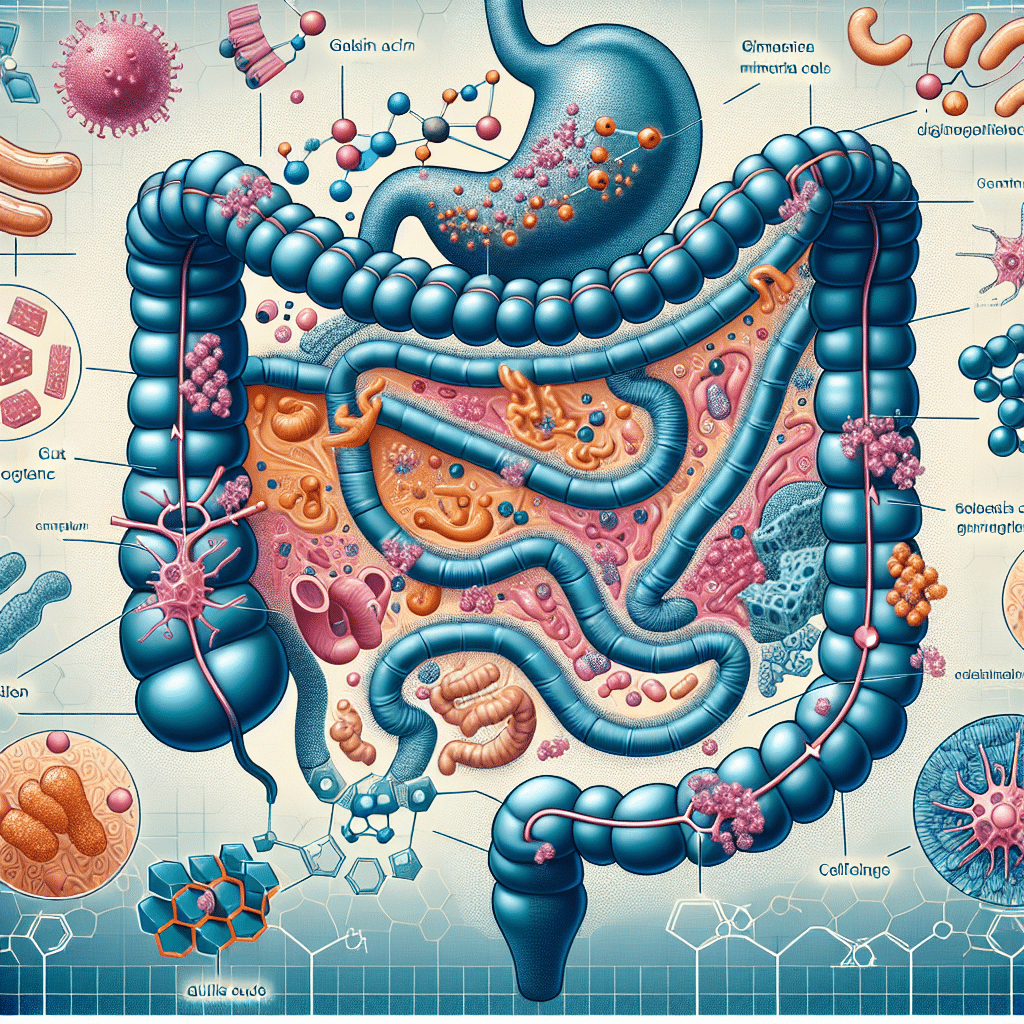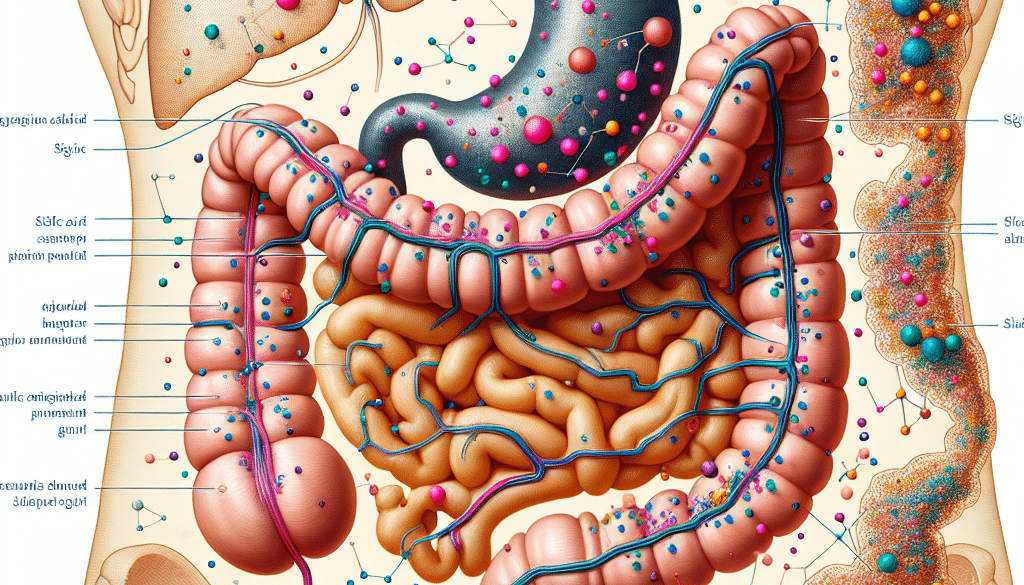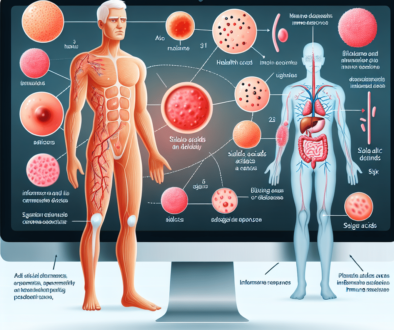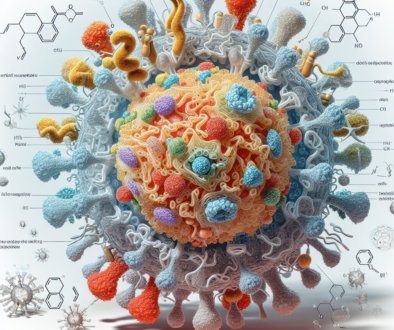What is sialic acid in the gut?
-
Table of Contents
- Sialic Acid in the Gut: Understanding Its Role and Functions
- Introduction to Sialic Acid
- The Role of Sialic Acid in the Gut
- Sialic Acid and Gut Microbiota
- Implications for Health and Disease
- Case Studies and Research Findings
- Conclusion: Key Takeaways on Sialic Acid in the Gut
- Enhance Your Health with ETprotein’s Protein Products
Sialic Acid in the Gut: Understanding Its Role and Functions

Sialic acid, a term that may seem obscure to many, plays a crucial role in the human body, particularly within the gut ecosystem. This article delves into the intricacies of sialic acid, exploring its functions, its impact on gut health, and the broader implications for human well-being. By understanding sialic acid’s role in the gut, we can appreciate the complex interplay between diet, microbiota, and overall health.
Introduction to Sialic Acid
Sialic acid is a family of nine-carbon sugar acids that are found on the surface of cells and proteins. It is a critical component of glycoproteins and glycolipids, which are essential for various biological processes. In the gut, sialic acid is involved in cell signaling, microbial interactions, and immune responses. Its presence and metabolism within the gastrointestinal tract have significant implications for health and disease.
The Role of Sialic Acid in the Gut
The gut is a complex environment where host cells and a diverse community of microbes interact. Sialic acid plays multiple roles in this setting:
- Cellular Communication: Sialic acid residues on cell surfaces facilitate communication between cells and help in the recognition and response to external stimuli.
- Barrier Function: It contributes to the mucosal barrier, protecting the gut lining from pathogens and toxins.
- Immune Modulation: Sialic acid can modulate immune responses by interacting with sialic acid-binding immunoglobulin-type lectins (Siglecs) on immune cells.
- Microbial Interaction: Gut bacteria can utilize sialic acid as a nutrient, and some pathogens use it to evade the host’s immune system.
Sialic Acid and Gut Microbiota
The gut microbiota is a complex community of bacteria, viruses, fungi, and other microorganisms that reside in the gastrointestinal tract. Sialic acid is a critical nutrient for some of these microbes, influencing the composition and function of the gut microbiome. For example, certain beneficial bacteria, such as Bifidobacteria, have evolved mechanisms to scavenge sialic acid from the gut environment, giving them a competitive edge and potentially benefiting the host.
Conversely, some pathogenic bacteria, like Clostridium difficile and Salmonella, have sialidases that cleave sialic acid from host glycoconjugates, using it to fuel their growth and facilitate infection. The balance between beneficial and harmful bacteria in utilizing sialic acid is a delicate one, with implications for gut health and disease.
Implications for Health and Disease
The metabolism of sialic acid in the gut is linked to various health outcomes. For instance:
- Inflammatory Bowel Disease (IBD): Altered sialic acid metabolism has been observed in IBD, potentially contributing to inflammation and disease progression.
- Neonatal Health: Human milk is rich in sialylated oligosaccharides, which are thought to support the development of a healthy gut microbiota in infants.
- Infection: Pathogens that exploit sialic acid can lead to infections, highlighting the importance of understanding sialic acid dynamics in the development of new treatments.
Case Studies and Research Findings
Research into sialic acid’s role in the gut has yielded fascinating insights. For example, studies have shown that altering dietary sialic acid can impact the gut microbiota composition and immune function. Additionally, research on probiotics that can metabolize sialic acid suggests potential therapeutic applications for gut health.
Another area of interest is the investigation of sialic acid analogs as antimicrobial agents. By mimicking sialic acid, these compounds can potentially disrupt the metabolism of pathogenic bacteria, offering a novel approach to treating infections.
Conclusion: Key Takeaways on Sialic Acid in the Gut
In summary, sialic acid is a vital component of the gut ecosystem, with diverse roles in cellular communication, barrier function, immune modulation, and microbial interactions. Its metabolism is intricately linked to gut health, influencing the balance between beneficial and pathogenic microbes. Understanding sialic acid’s functions can lead to better nutritional strategies, therapeutic interventions, and a deeper comprehension of gut-related diseases.
Enhance Your Health with ETprotein’s Protein Products
If you’re looking to support your gut health and overall well-being, consider incorporating high-quality protein products from ETprotein into your diet. ETprotein offers a range of organic, non-GMO, allergen-free protein powders that can complement a healthy lifestyle. Their products, including rice protein, pea protein, and various seed proteins, provide essential amino acids that are crucial for maintaining a healthy gut lining and supporting immune function.
Moreover, ETprotein’s L-(+)-Ergothioneine (EGT) supplements can offer additional benefits. EGT is an amino acid derivative with antioxidant properties, which may help protect gut cells from oxidative stress and support a balanced microbiome. Whether you’re involved in sports nutrition, weight management, or simply seeking to enhance your diet, ETprotein has the protein solutions to meet your needs.
About ETprotein:
ETprotein, a reputable protein and L-(+)-Ergothioneine (EGT) Chinese factory manufacturer and supplier, is renowned for producing, stocking, exporting, and delivering the highest quality organic bulk vegan proteins and L-(+)-Ergothioneine. They include Organic rice protein, clear rice protein, pea protein, clear pea protein, watermelon seed protein, pumpkin seed protein, sunflower seed protein, mung bean protein, peanut protein, and L-(+)-Ergothioneine EGT Pharmaceutical grade, L-(+)-Ergothioneine EGT food grade, L-(+)-Ergothioneine EGT cosmetic grade, L-(+)-Ergothioneine EGT reference grade and L-(+)-Ergothioneine EGT standard. Their offerings, characterized by a neutral taste, non-GMO, allergen-free attributes, with L-(+)-Ergothioneine purity over 98%, 99%, cater to a diverse range of industries. They serve nutraceutical, pharmaceutical, cosmeceutical, veterinary, as well as food and beverage finished product distributors, traders, and manufacturers across Europe, USA, Canada, Australia, Thailand, Japan, Korea, Brazil, and Chile, among others.
ETprotein specialization includes exporting and delivering tailor-made protein powder and finished nutritional supplements. Their extensive product range covers sectors like Food and Beverage, Sports Nutrition, Weight Management, Dietary Supplements, Health and Wellness Products, and Infant Formula, ensuring comprehensive solutions to meet all your protein needs.
As a trusted company by leading global food and beverage brands and Fortune 500 companies, ETprotein reinforces China’s reputation in the global arena. For more information or to sample their products, please contact them and email sales(at)ETprotein.com today.












